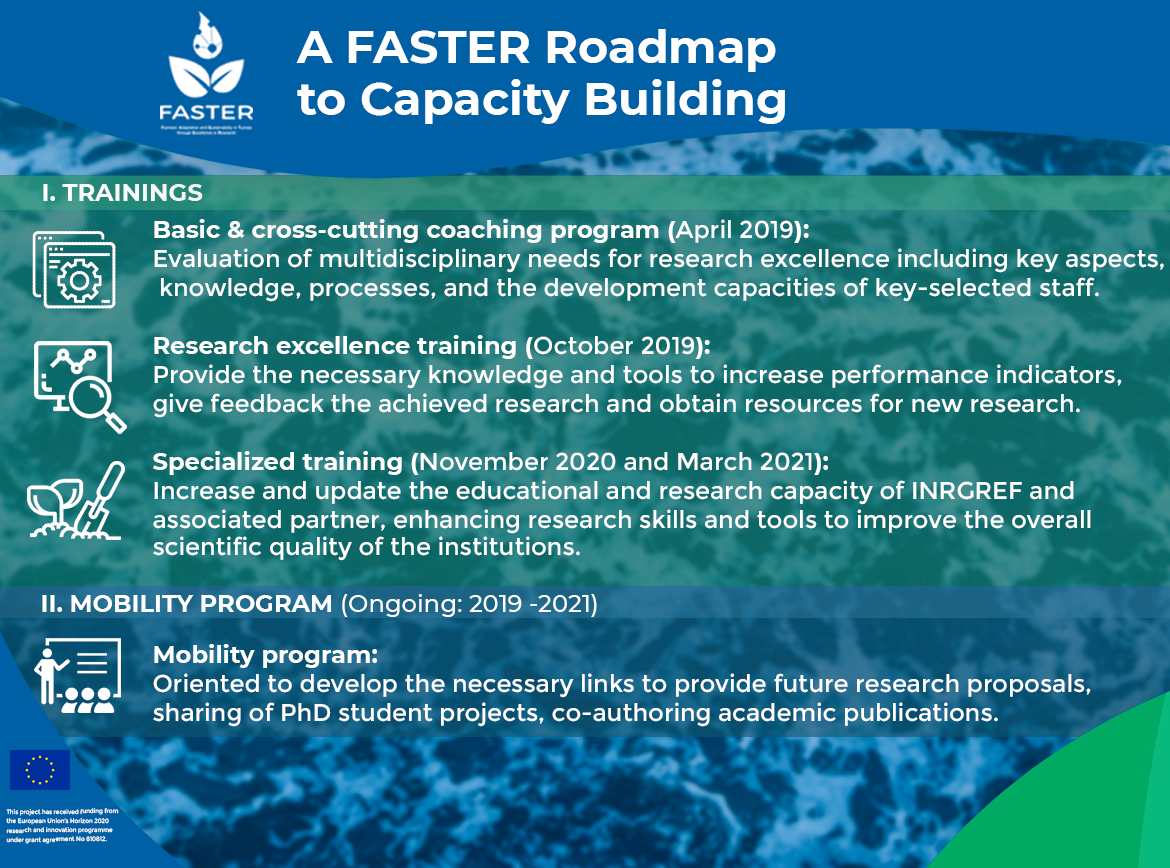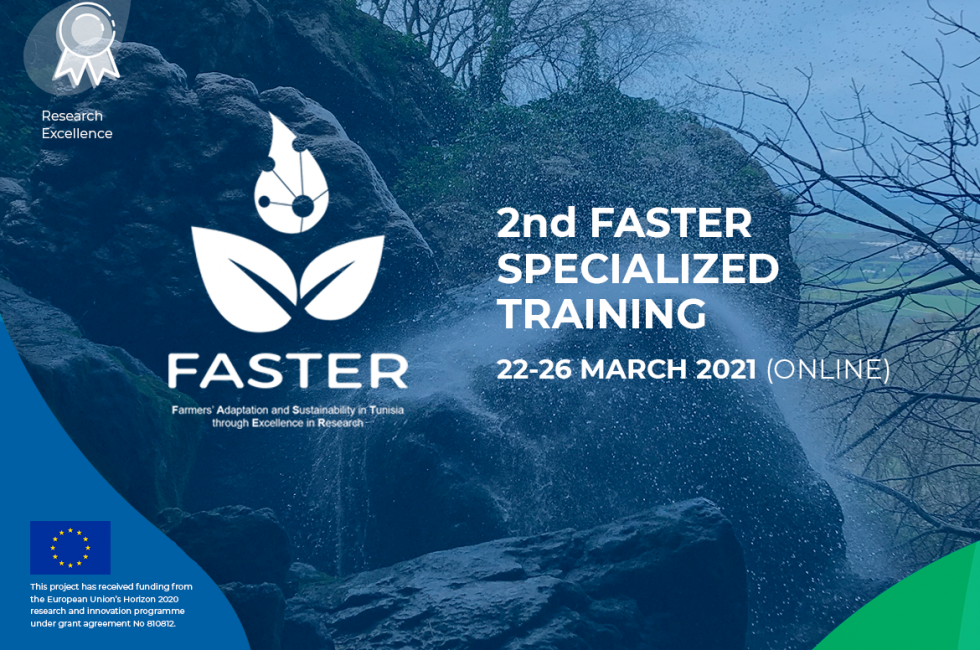The FASTER project focuses all of its efforts on promoting adaptation to climate change in land and water management. It is doing so by supporting research on these topics and building capacity within the necessary stakeholders to achieve a sustainable solution. One of the main tools to reach this objective is through Specialized Training, where students and young researchers from INRGREF and other associated partners are empowered to grow their knowledge and network on different key aspects. This is part of the two pillars through which FASTER aims to foster the improvement of INRGREF’s Research Excellence: the Training Courses and the Mobility Program.

Specifically, through the specialized Training Courses, the participants can increase and update their educational and research capacity to share it with their institutions’ peers. The training activities began in April 2019, a few months after the start of the FASTER project, and follow up activities have shown how so far the attendees have already strengthened their research skills and tools, also boosting their innovation potential, research excellence, and the overall scientific quality of their institutions.
The Timeline of the Specialized Training Program
The last specialized training program included eleven training courses on particular topics to equip the participants with proficiency in climate adaptation. CREAF organised the first edition from the 2nd to the 6th of November 2020 and the second edition was carried out last week by Lund University. Both partners provided the necessary knowledge and tools to increase research performance indicators.
The 1st specialized training conducted by CREAF’s researchers covered key aspects to enhance research and expertise on adaptation to climate change through:
- the improvement of research skills and knowledge in adaptation to climate change, terrestrial ecology and water resources management and innovative governance
- the analysis of examples of new research tools to students and researchers for developing improved education, research, and scientific output
Additionally to the first training, FASTER held online the second edition of the program at Lund University during the week from the 22nd to the 26th of March 2021. The high-end trainers that carried it out were Ronny Berndtsson, Magnus Persson, Linus Zhang, Hossein Hashemi, and Erik Nilsson.
The 2nd specialized training at Lund University covered the five following areas:
- Climate change effects on water management in the Mediterranean
In this session, participants discussed climate variation and change effects on typical water management activities such as irrigation, hydropower, and drinking water.
- Integrated water & land resources management
The course aimed at delivering knowledge of Integrated Water Resources Management (IWRM). It assessed technical and non-technical issues, including the most common environmental water problems in developed and developing countries.
- Geographical information systems for landscape studies
Participants learned how to use GIS in landscape and water-related problems, focusing on understanding representation and analysis of spatial elements with applications in soil and water management.
- Recharge and groundwater modelling
The course aimed to supply knowledge on groundwater recharge processes and ways to model these specifically in arid and semiarid areas.
- Modelling of crop irrigation and salinity effects
Through different case studies, the attendees enhanced their understanding of water-efficient crop production and ways to supply water and nutrients and avoid adverse salinization effects.

Through the specialized training, the participants were able to improve their research skills and knowledge in adaptation to climate change, terrestrial ecology and water resources management and innovative governance. This was possible with instructors’ help and the case-studies provided for developing the research excellence between the students and researchers. Also, bringing all of these people together allowed to crowdsource wisdom and increase networking and partnerships among them.
To learn more about our commitment to #ResearchExcellence, follow #FASTERH2020 on Facebook and Twitter
Subscribe to our Newsletter to stay informed about the activities carried out by the project.


